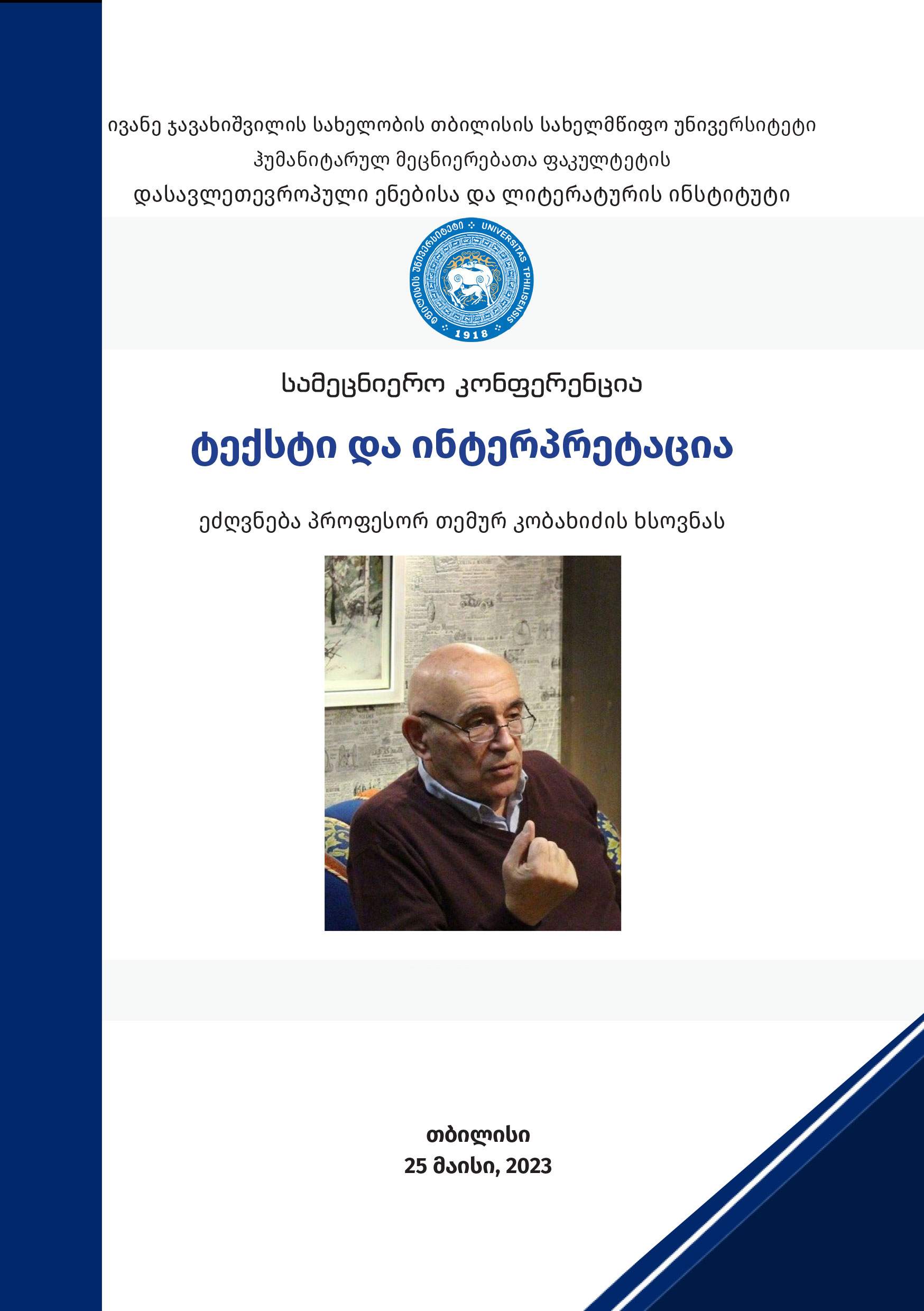Interpretation of the Myth of Orpheus and Eurydice in Salman Rushdie's Novel The Ground Beneath Her Feet
Keywords:
Rushdie, Interpretation, Myth, Orpheus, EurydiceAbstract
The article discusses the interpretation of the myth of Orpheus and Eurydice in Salman Rushdie's novel The Ground Beneath Her Feet. The purpose of the article is to show the significance of the interpretation of Orpheus and Eurydice’s myth in the post-colonial and post-modernist world.
Rushdie, known as a post-colonial writer, explores and challenges prevailing notions of colonialism, postcolonialism, nation, nationality, nationalism, history, and politics through innovative theories. It is worth noting that the study of Rushdie's work is a novel addition to the academic community in Georgia.
Postcolonial authors often employ myth, fantasy, and magical-realist techniques to expose empires, resulting in texts rich with exotic, magical, and mythical elements. Such usage serves as a regional alternative and a protest against the Eurocentric classification of the world. By presenting the real history of their oppressed nations, writers can offer a reinterpretation of the version established by the dominant, conquering nation. This provides marginalized and oppressed groups with opportunities for self-expression. Rushdie endeavours to interpret the process of identity formation among postcolonial migrants through the use of myth.
According to researchers, the author's decision to transform Orpheus into a modern character is fully justified. The protagonist of the novel is the god of music, capable of enchanting people like Orpheus. Rushdie is constantly trying to connect Ormus’s life and music with the idea of migration.
From ancient Greek sculpture to twenty-first-century experimental musical forms, Orpheus has inspired numerous works of art. Rushdie's interest in the myth of Orpheus can be interpreted in various ways. On one hand, Orpheus's descent into hell to find the lost Eurydice reminds the risky decision of immigrants to cross geographical and cultural boundaries. By utilizing the figure of Orpheus, the author endeavours to incorporate music as a form of transcendental and universal communication.
It is obvious that the image of Orpheus is particularly interesting. It breaks the extreme boundaries between life and death. His mixed and enigmatic genealogy, with some sources claiming he is the son of Apollo while others depict him as the son of Egrus, presents him as a figure embodying Greek, Thracian, European, and Asian identities, simultaneously existing as both man and God.
Rushdie advocates a hybrid world model - a world where difference and heterogeneity are not only acceptable but necessary for the uniqueness of culture. He actually shares Homi Baba's idea to create equality between cultures through hybridization. In this context of hybridization, there is no cultural hierarchy, discrimination, prejudice, or bias between cultures.
The novel represents a space where ancient myths transform into new and complex identities. At the same time, modern myths of migration are born, and metaphors appear. It can be said that myth, migration, and the question of identity are the main themes of Rushdie's musical novel, carrying implications for the modern global world.

